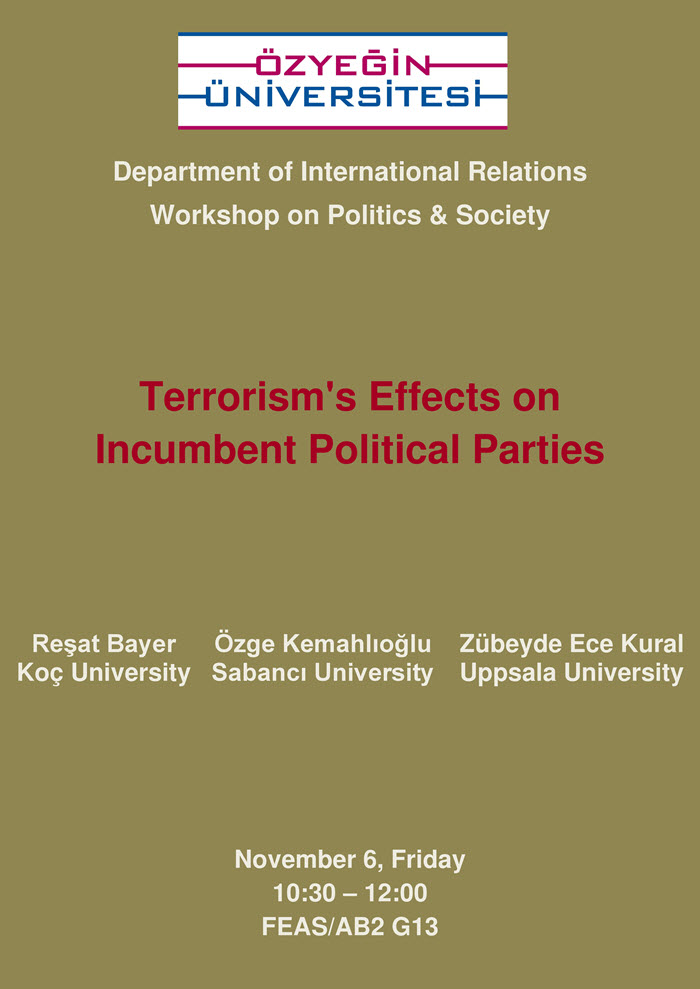Özyeğin University, Çekmeköy Campus Nişantepe District, Orman Street, 34794 Çekmeköy - İSTANBUL
Phone : +90 (216) 564 90 00
Fax : +90 (216) 564 99 99
E-mail: info@ozyegin.edu.tr

Workshop on Politics & Society - II
You are cordially invited to the Department of International Relations’ second Workshop on Politics and Society entitled “Terrorism's Effects on Incumbent Political Parties" by Resat Bayer of Koc University, Ozge Kemahlioglu of Sabanci University, and Zubeyde Ece Kural of Uppsala University.
The event is scheduled to take place on November 6th, 2015, Friday from 10:30 to 12:00 in room FEAS G13. You can find the abstract of the workshop below.
For further information about the event, please contact Mr. Ufuk Turkkan from ufuk.turkkan@ozyegin.edu.tr.
Terrorism's Effects on Incumbent Political Parties
While the large-N literature has paid some attention to the relationship between electoral politics and terrorism with a focus on whether terrorism affects left-wing or right-wing parties, we argue, that the role ofincumbency is overlooked. We maintain that through local state resources and party machinery the national incumbent party is able to overcome criticisms that breaches to security happened on its watch. We conductseparate analyses on the 1993 and 1997 general elections from Chile and five general elections between 1995 and 2011 in Turkey. These two countries are not only historically among the most terror-affected countries of the world and have a checkered history with democracy (Weinberg 2013) but they also enable us to compare the effects of urban ideological terrorism in the case of Chile with that from Turkey which includes rural guerrilla warfare and has an ethnic dimension, and also affected civilians as well as non-civilians. We combine data from the Global Terrorism Database with electoral politics data. Our choice of countries enables us to examine left-wing incumbents, right-wing incumbents, single party and coalition incumbent governments. Unlike much of the relevant literature, our statistical analysis is conducted at the municipal level, where we argue that the effects of terrorism are most likely to be felt given the proximity tothe attack. The results demonstrate the importance of considering the municipal level electoral linkages as well as the local party organizations more in the study of political violence as strong local organizations present incumbent parties the opportunity to avoid blame for their failure to provide security to citizens.
